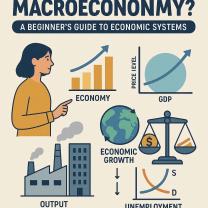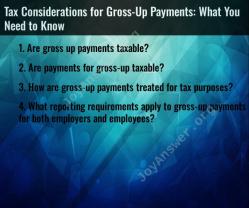What do credit cards have zero interest?
Credit cards with zero interest, often known as 0% APR (Annual Percentage Rate) credit cards, offer a promotional period during which you won't be charged interest on your purchases or balance transfers. These cards can be beneficial for individuals looking to make large purchases or pay off existing credit card debt without incurring additional interest charges. However, it's important to understand the terms and conditions associated with these cards. Here are some key points to consider:
Introductory Period:
- Zero-interest credit cards typically come with an introductory period during which the 0% APR applies. This period can range from several months to over a year, depending on the card issuer and the specific offer.
Types of Transactions:
- The zero-interest promotion often applies to either purchases, balance transfers, or both. Be sure to check the terms to understand which types of transactions qualify for the promotional rate.
Balance Transfer Fees:
- While the interest rate may be 0% for balance transfers, some credit cards charge a fee for transferring a balance. This fee is usually a percentage of the amount being transferred.
Regular APR:
- After the introductory period expires, the credit card's regular APR will apply to any remaining balance. This rate can be relatively high, so it's important to have a plan for paying off the balance before the promotional period ends.
Creditworthiness:
- Approval for a zero-interest credit card is often contingent on your creditworthiness. Individuals with higher credit scores are more likely to qualify for these types of cards.
Annual Fees:
- Check if the credit card charges an annual fee. While some zero-interest cards come with no annual fees, others may have fees associated with card ownership.
Late Payments:
- Making late payments can have consequences, such as the loss of the zero-interest promotion. Additionally, late payments may result in fees and negatively impact your credit score.
Credit Card Rewards:
- Some zero-interest cards also offer rewards programs, providing additional benefits such as cash back, points, or miles for eligible purchases.
Consider Your Financial Goals:
- Before applying for a zero-interest credit card, consider your financial goals and whether the card aligns with them. If you're looking to pay down existing debt or make a large purchase, these cards can be a useful tool.
Read the Fine Print:
- Carefully read the terms and conditions of any credit card offer. Understand the details of the introductory period, the regular APR, and any fees associated with the card.
It's crucial to use zero-interest credit cards responsibly and have a plan for paying off the balance before the promotional period ends to avoid high-interest charges. Additionally, maintaining good financial habits, such as paying bills on time, can contribute to a positive credit history.
Why do some credit cards have zero interest?
Credit card companies offer zero-interest periods to attract new customers and encourage existing customers to spend more money. A zero-interest period is a promotional period during which a credit card company does not charge interest on purchases made with the card. This can be a good way to finance a large purchase or to pay off debt without incurring additional interest charges.
How do credit card companies benefit from offering zero-interest periods?
Credit card companies benefit from offering zero-interest periods in a few ways. First, zero-interest offers can help to attract new customers. When a customer opens a new credit card with a zero-interest offer, they are more likely to use the card and spend money on it. This generates income for the credit card company in the form of merchant fees.
Second, zero-interest offers can encourage existing customers to spend more money. When a customer knows that they can make purchases without paying interest for a period of time, they are more likely to make those purchases. This also generates income for the credit card company in the form of merchant fees.
Finally, zero-interest offers can help to reduce the amount of debt that customers owe to the credit card company. When a customer pays off their debt during the zero-interest period, they are less likely to default on the loan. This reduces the risk of loss for the credit card company.
Are there any drawbacks to zero-interest credit cards?
Yes, there are a few drawbacks to zero-interest credit cards. First, the zero-interest period is only for a limited amount of time. After the zero-interest period ends, the credit card company will start charging interest on the remaining balance. This interest rate can be very high, so it is important to pay off the balance during the zero-interest period.
Second, some zero-interest credit cards have a balance transfer fee. This fee is charged when you transfer a balance from another credit card to your new zero-interest credit card. The balance transfer fee is typically 3% to 5% of the transferred balance.
Third, some zero-interest credit cards have a penalty APR. This is a high interest rate that the credit card company will charge if you miss a payment or if you carry a balance after the zero-interest period ends.
Understanding the fine print: What to know about zero-interest offers
It is important to read the fine print carefully before applying for a zero-interest credit card. The fine print will tell you the length of the zero-interest period, the balance transfer fee, the penalty APR, and any other fees or restrictions that apply.
Here are some specific things to look for in the fine print:
- The length of the zero-interest period: Make sure that the zero-interest period is long enough for you to pay off the balance in full.
- The balance transfer fee: If you plan to transfer a balance from another credit card, make sure that the balance transfer fee is not too high.
- The penalty APR: If you miss a payment or carry a balance after the zero-interest period ends, be aware of the penalty APR. This interest rate can be very high, so it is important to avoid it if possible.
How to responsibly use credit cards with zero interest
To responsibly use credit cards with zero interest, follow these tips:
- Only make purchases that you can afford to pay off during the zero-interest period.
- Set up a budget and stick to it.
- Make sure that you make all of your payments on time and in full.
- Pay off your balance as quickly as possible to avoid paying interest.
If you use credit cards with zero interest responsibly, they can be a great way to save money on interest charges. However, it is important to be aware of the drawbacks and to read the fine print carefully before applying for a zero-interest credit card.












